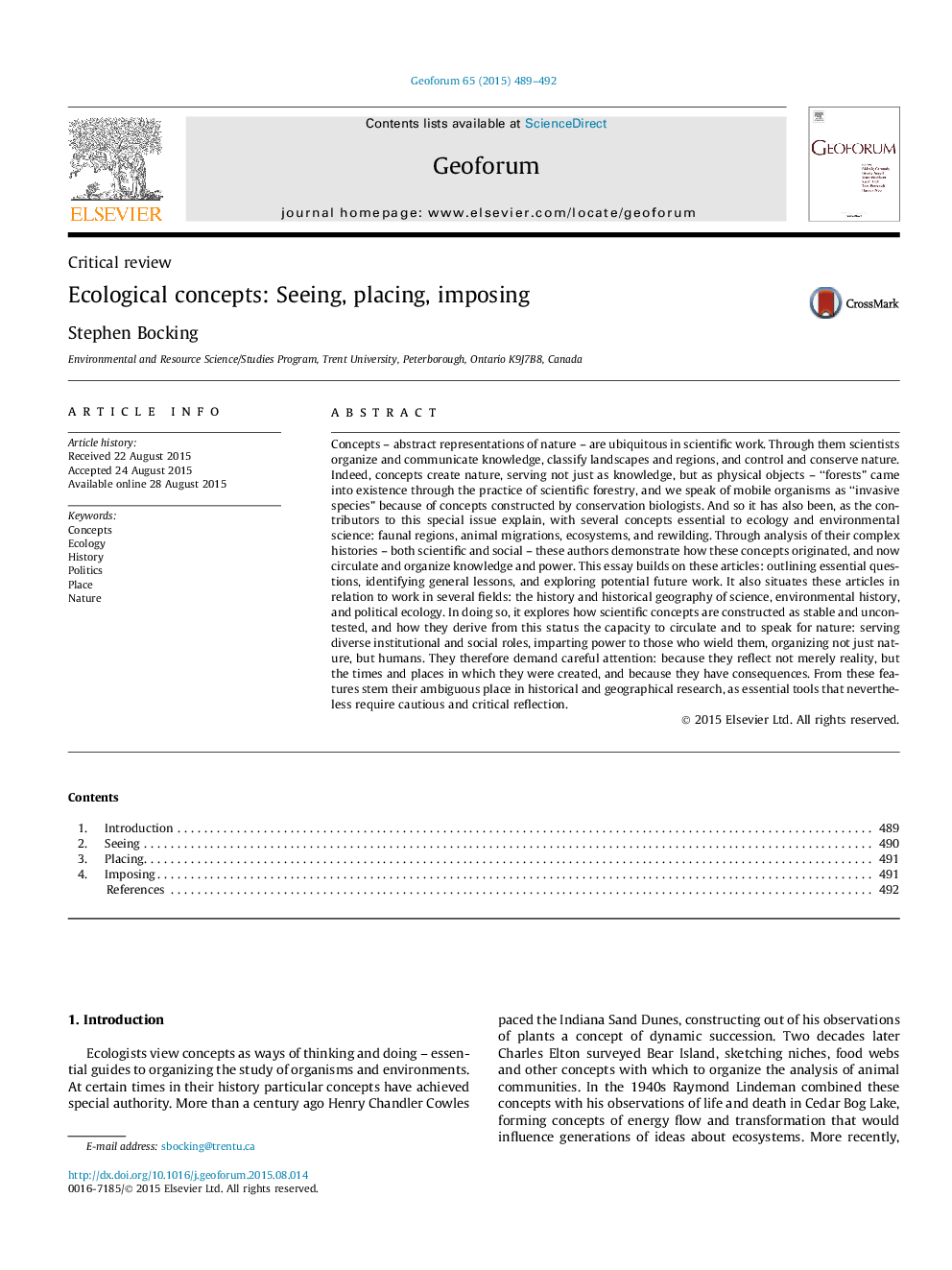| Article ID | Journal | Published Year | Pages | File Type |
|---|---|---|---|---|
| 5073842 | Geoforum | 2015 | 4 Pages |
Concepts - abstract representations of nature - are ubiquitous in scientific work. Through them scientists organize and communicate knowledge, classify landscapes and regions, and control and conserve nature. Indeed, concepts create nature, serving not just as knowledge, but as physical objects - “forests” came into existence through the practice of scientific forestry, and we speak of mobile organisms as “invasive species” because of concepts constructed by conservation biologists. And so it has also been, as the contributors to this special issue explain, with several concepts essential to ecology and environmental science: faunal regions, animal migrations, ecosystems, and rewilding. Through analysis of their complex histories - both scientific and social - these authors demonstrate how these concepts originated, and now circulate and organize knowledge and power. This essay builds on these articles: outlining essential questions, identifying general lessons, and exploring potential future work. It also situates these articles in relation to work in several fields: the history and historical geography of science, environmental history, and political ecology. In doing so, it explores how scientific concepts are constructed as stable and uncontested, and how they derive from this status the capacity to circulate and to speak for nature: serving diverse institutional and social roles, imparting power to those who wield them, organizing not just nature, but humans. They therefore demand careful attention: because they reflect not merely reality, but the times and places in which they were created, and because they have consequences. From these features stem their ambiguous place in historical and geographical research, as essential tools that nevertheless require cautious and critical reflection.
